The Fairmount College newsletter is published two times a year. For information, contact Cheryl K. Miller, writer and coordinating editor, at 316-978-6659 or cheryl.miller@wichita.edu.
Photo credits: Cheryl K. Miller; courtesy photos; Wichita State University Libraries, Special Collections and University Archives
Newsletter Section Menu
American Sign Language Degree Meets Demands Dean's Message Associate Dean Takes Strides to Reduce the Equity Gap Student Wins Grant, Plans to Finish Novel Two Alumni Become H.O.F. Inductees EPA Awards $10 Million Grant Spotlight on Funding Student Accolades Senior Honors Awards Faculty and Staff Accolades In Memoriam Retirements Annual Report
American Sign Language Degree Meets Student, Community and Employment Demands

Wichita State students who want to earn a bachelor’s degree in American Sign Language will be able to make progress toward that goal this fall.
ASL, broadly used in the deaf and hard-of-hearing population, is recognized by linguists as a language with its own culture. Its addition to Wichita State’s Department of Modern and Classical Languages and Literatures complements the world languages housed there.
“ASL incorporates all of the linguistic design features of a language. It has its own grammatical rules that govern the language,” Kelly Adams, lead interpreter and notetaker coordinator for the Office of Disability Services, said. “It has its own lexicon, its own morphology, its own syntax.”
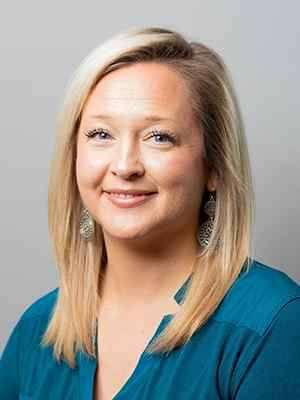
“ASL behaves just like Spanish, French, or German,” Wilson Baldridge, professor of French and MCLL department chair, said.
Additionally, according to Adams, ASL is used by a large community of people to share and visualize new ideas, contributing to its culture.
Shockers will be able to tailor the Bachelor of Arts in ASL to their interests and needs by choosing one of three tracks: The Structure of Language, Language and Culture in Context, or Interpreting Methods.
As demand for certified interpreters increases in Kansas, Wichita State’s program will help grow the talent pipeline for the state. The degree is one of only two in Kansas where students can train to become certified ASL interpreters. Candidates who want to take the Certified Deaf Interpreter Examination are required to have a bachelor’s degree.
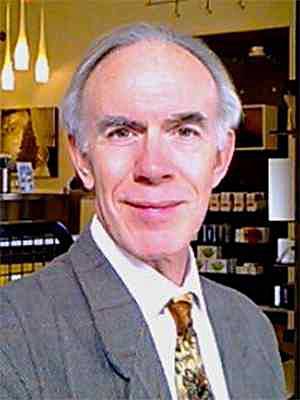
“Most of the graduates from the KU program tend to stay in the northeastern part of the state to serve the deaf population there,” Adams said. “We have a large number of deaf individuals who live in this area, and I would say most of the interpreters in this area are getting close to retirement age.”
Wichita State’s degree can help fill the gap in interpreting services available for the deaf population here, Adams said, and produce more interpreters to take the place of those who will be retiring. The population, she added, is vastly underserved because of the language barriers and lack of cultural understanding.
“The new degree responds to the need for qualified interpreters and the need to bring an awareness of signed languages as natural languages, just as sophisticated, expressive and beautiful as spoken languages,” Andrew Hippisley, dean, said. “ASL will be a sister language to Spanish, French and German.”
The major also meaningfully addresses Wichita State’s core value to make the campus inclusive and accessible for everyone. ASL courses attract more than 100 students who minor in sign language or take ASL to meet language requirements in Fairmount College.
The inclusion of ASL as a language option adds another opportunity for students to double major with a language or to fulfill the language requirement for a Bachelor of Arts degree.
“We expect many MCLL majors to spring for the bilingual option — for example, French or Spanish plus ASL,” Baldridge said. “This conforms to Wichita State’s applied mission, or purpose, because students will use their translation and interpreting skills in the workplace. It’s applied learning.”
Return to Newsletter Section Menu
Dean's Message
Dear Fairmount College alumni, faculty, staff and friends:
One of our goals as a college is to be a provider of accessible educational opportunities. This aligns with an important university goal, and indeed a goal of the Kansas Board of Regents. What does accessible mean in the context of an urban-serving institution of higher learning? Regardless of economic background, minority status, or first-generation status, students have full access to all that we have to offer: degree programs, courses, experiences. But it is more than a matter of accessing all of this. Access means the expectation of a level of support to push and sustain students on the academic journey that they started. There is an implied contract here: If we create access to a program of study, we commit to providing the academic resources to sustain the student through that program of study.

Educators know that learning is a process that is, itself, diverse. People learn in different ways, depending on the experience they bring with them and who they are as individuals. To teach to different needs is an art that we are cultivating in the college because we know that one size does not fit all. Evidence of this is what the university is terming the equity gap, in student retention and student graduation. When comparing students who are either minority, economically disadvantaged or first generation, the rate at which they stay the course and the rate at which they graduate after six years is significantly lower compared to the rest of the student population. Closing the gap is part of what it means to be an urban-serving institution. The Fairmount College of Liberal Arts and Sciences is taking seriously the challenge to close the gap. Given that we have the largest number of majors and that we teach many courses that are fundamental to majors outside the college, it is imperative that we do our part to close the equity gap; and, in fact, remove the gap altogether.
In August 2022, we filled a brand new administrative position for an associate dean of diversity, equity and inclusion. We appointed a resident expert, Jean Griffith, who is a former chair of the English department and director of faculty and curricular diversity in the provost’s office. She has as one of her goals to increase the diversity of our faculty because diverse faculty are key to retaining diverse students. Students have a strong tendency to model themselves on faculty who share their identity and background. She is also engaged in the student experience and will be guiding us through the creation of a college-level and college-focused DEI strategic plan. Part of this will be to reimagine how we teach core courses in math, statistics, sciences, English composition and speech in a way that addresses the learning of students from all backgrounds
A point of pride in the college is the privilege to teach and impact underserved students —students whose opportunity for higher education is Wichita State University — and providing them with the large range of degree programs and courses housed in Fairmount College. Providing accessible education is both our mission and our privilege.
Yours,
Andrew Hippisley, Dean
Return to Newsletter Section Menu
Associate Dean Takes Strides to Reduce the Equity Gap
For as long as she can remember, Jean Griffith has valued diversity, equity and inclusion. Now, as the associate dean for DEI and an associate professor of English, she’s in a position to expand the work Fairmount College is doing, and in a way that will benefit everyone.
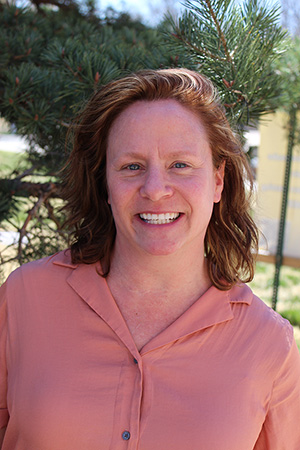
“DEI has always been a part of who I am. I don’t know what led me to it,” Griffith said. “I value nonbiological connections as much as biological connections, and for me, that extends to connections with people different from me.”
“The college is fortunate to have Dr. Griffith’s expertise in diversity, equity and inclusion,” Andrew Hippisley, dean, said. “Her leadership will help move the college forward in its efforts to increase our diversity, ensure all voices are heard, and dismantle systematic inequities through education and research.”
Strategizing Faculty and the Curriculum
In Griffith’s new role, one issue she will be working toward is increasing the number of faculty from diverse backgrounds.
“I think students are more comfortable coming to faculty who look like them,” Griffith said. “If you don’t think someone is going to understand your perspective, you’re not likely to go to them for help. I think for the faculty member, knowing how to help the student once they come to them for help, is really important.”
She works closely with search advocates in the college, faculty from diverse backgrounds who sit with department search committees and ensure all candidates for faculty positions are treated fairly and equitably.
She’s also created a DEI advisory committee, expanding upon the previous diversity committee created by Rhonda Lewis, professor of psychology.
“The committee will help me write a DEI strategic plan for the college,” Griffith said. “I have people who are experts in gender expression, sexuality, race and ethnicity. I have people who are experts in class and poverty, and I also have an expert in environmental studies, which I see as a DEI issue.”
Griffith will also work with the college’s curriculum committee to create and support courses that reflect student and societal needs. A conversation with Latinx students a few years back highlighted this desire.
“What we heard was that they didn’t necessarily want instruction in Spanish,” Griffith said. “They were native speakers of English. They wanted to see classes that reflected their contemporary reality in the United States: ‘What is it like to be a Latinx American?’ And we simply didn’t have those kinds of courses.”
She said she wants to take a student-centered look at some of the curriculum.
“We need to look at the curriculum and see how we could better serve students that way, and how that links to retention, which I think is important. Let’s rethink how we tweak our classes and ask students what they want to learn about,” Griffith said.
She views the equity gap in higher education, or disparities in student outcomes and success, as one of many gaps in broader society.
“I don’t think we can take it in isolation at WSU, and I don’t think we can take it in isolation in higher ed,” Griffith said. “I think we need to see it as a systemic thing, in all of our society and many of its manifestations. I see my role as helping to start that conversation.”
The equity gap is the retention issue for students, she said.
Teaching as a Bridge to Students
Although the bulk of her DEI responsibilities relate to college faculty and the curriculum, she purposefully stays in the classroom to remain connected to students. This semester she is teaching a course on African-American literature, and one class session in particular illustrates how much history is kept from students in general.
“I spend a class day on lynching, and students read ‘The Red Record’ by Ida B. Wells — a kind of call to action for anti-lynching legislation,” Griffith said. “We also spend a lot of time on the website and book, both called ‘Without Sanctuary: Lynching Photography in America.’”
Students in the class gain a deeper understanding of racial violence.
“One of the things that inevitably comes out is that students had never heard of that (lynching) before. They didn’t know,” Griffith said. “They might have heard Emmett Till’s name, for example, but they’ve never had any kind of in-depth information. And students of color and white students alike are angry that it gets kept from them, and that doesn’t inform their decision making.”
These sorts of conversations with students help her make informed decisions in her DEI role. Though her responsibilities prioritize faculty and the curriculum, her work directly benefits students and serves to narrow the equity gap.
Return to Newsletter Section Menu
Student Wins Prestigious Grant, Plans to Finish Novel
By Elena Kuckelman, media intern
Chinonyelum Anyichie’s love for writing began early in her childhood. From a young age, she spent her days reading and writing poems. She describes her childhood self as withdrawn and introspective, using writing as an outlet for creativity.
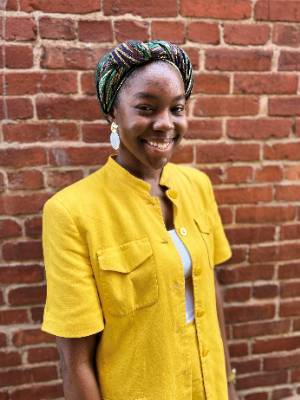
Now pursuing a Master of Fine Arts in creative writing, Anyichie is in the process of writing her first novel with the help of a $20,000 grant from the Elizabeth George Foundation.
A year ago Anyichie had not planned on writing a novel. She had written several short stories, but after reading “The Water Goddess in Igbo Cosmology” by Sabine Jell-Bahlsen, inspiration sparked Anyichie to start her own novel. Anyichie is from Nigeria and is Igbo, so the book’s themes were culturally familiar to her. The book features a story of a fisherwoman who finds a mask. In the Igbo culture, wearing a mask is a symbol of power.
“Only men are allowed to wear masks; women cannot,” Anyichie said. “That was what I've always known.”
However, after reading the story by Jell-Bahlsen, Anyichie began to question why this rule was put in place. That inspired her to write her own story about four African female characters searching for freedom and autonomy, guided by a divine feminine spirit.
Anyichie’s novel, titled “The Daughters of Ojeru,” reimagines the story of the woman who found the mask, following her daughters as they search for a different, more liberated life than their mother has had.
Anyichie has already finished the first draft of her novel and is working on a second draft.
“Hopefully, I plan to be done with it by this year and start revising, rewriting and all that,” Anyichie said.
“I want to get through this one first but then, of course, I want to write more novels. This will just be my first child.” - Chinonyelum Anyichie
Writing her novel has inspired Anyichie to continue creating her own stories.
“I want to get through this one first, but then, of course, I want to write more novels,” Anyichie said. “This will just be my first child.”
Now that Anyichie has the Elizabeth George Foundation grant to help her finish her novel, she plans to use the money to travel back to Nigeria, interview women from her home and travel to writer-in-residencies. Anyichie says the grant will allow her to remain focused on finishing her novel.
“Just to foot my living expenses so then I won't have to bother about working and then worrying about that,” Anyichie said. “Having that energy— that creative energy — I can focus on my novel.”
Anyichie has found that her classes in her master’s program have helped with her novel. In Nigeria, she earned a master’s degree in English, but knew she still wanted to pursue a creative writing degree.
“I’ve always wanted to have an MFA program because then it will help me hone my writing skills, and it will give me some years to really focus on the writing,” Anyichie said.
Having received a grant to write her own novel has made Anyichie feel extremely grateful. She recognizes that writers go through periods of discouragement, but is thankful to have the support from the Elizabeth George Foundation to help see her through.
“This grant that I was awarded encouraged me and provided the moral support that I feel seen, and it gives me the platform and the confidence to pursue my craft,” Anyichie said.
Return to Newsletter Section Menu
Two Fairmount College Alumni Become Hall of Fame Inductees
A career communicator and an appellate judge have joined the growing number of Fairmount College alumni celebrated for their noteworthy contributions to their professions and society.
Elvira Valenzuela Crocker, ‘61, and Louis E. Sturns, ‘71, were inducted into the Fairmount College of Liberal Arts and Sciences Hall of Fame on Feb. 7.
“Both inductees represent the lived power of a liberal arts education, equipped to be leaders in their respective fields, and self-directed to seek the truth, enact justice, serve others and help the marginalized, so making the world a better place,” Andrew Hippisley, dean, said.
Following a formal induction ceremony, Hippisley moderated a panel discussion with Crocker and Sturns about their university experiences and how a liberal arts and sciences education prepared them for their careers.
“If I hadn't had a liberal arts education I wouldn't have been able to write about all the different subjects that I had to write about in my lifetime,” Crocker said. “It enabled me to do all kinds of things. I think if I hadn't had that kind of a broad education I would have been limited in what I could have done."
Sturns responded similarly.
“I think my liberal arts education helped me immediately when I went to law school because here at Wichita State, I was given an opportunity to expand upon and improve my writing skills, and that became very important in law school as well as in my career as a lawyer,” Sturns said. “The development of my writing skills and my ability to think critically were the two most important things I gained from my liberal arts education.”
Watch the Induction Ceremony and Panel Discussion
Hall of Fame Inductees
Elvira Valenzuela Crocker, who holds bachelor’s degrees in journalism and English literature from the University of Wichita, began a full-time career that eventually brought her to roles in reporting and editing at the Wichita Eagle and Beacon.
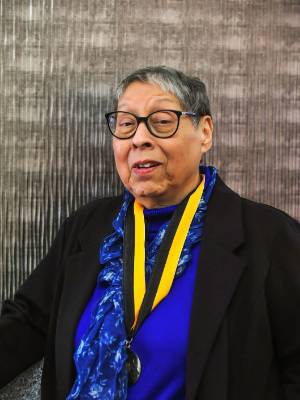
A long-time feminist and civil rights activist, Crocker was appointed to the Montgomery County (Maryland) Commission for Women and chaired its committee on pay equity. She was elected as a delegate to the historic 1977 National Women’s Conference. She served in various leadership positions, including president, for the Mexican American Women’s National Association, an advocacy organization for Latinas and their families. She also wrote MANA’s history, “One Dream, Many Voices.” She worked on both of President Bill Clinton’s presidential campaigns; the International Women’s Year Commission; the President’s Advisory Committee on Women; and as a consultant to the Women’s Vote Project.
Louis E. Sturns holds a bachelor’s degree in political science from Wichita State, and a doctorate in law from the University of Kansas School of Law. Upon graduation from KU, he served for three years as captain in the United States Army Judge Advocate General’s Corps. Sturns served as the first African American Criminal District Court Judge in Tarrant County, Texas; the first African American on the Texas Court of Criminal Appeals, the state’s highest court for criminal cases; and the first African American president of the Tarrant County Bar Association. He later became judge of the 213th District Court in Tarrant County, where he served until his retirement.
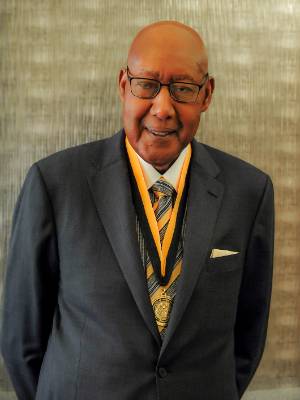
Per requests made by the chief justice of the Texas Supreme Court, Judge Sturns presided over some of the most complicated legal cases involving other elected officials. Included among those requests was a Court of Inquiry into prosecutorial misconduct which led to major changes for rules of discovery in Texas.
Sturns has served in various capacities on state and local boards, including the Texas Juvenile Justice Advisory Board, Texas Department of Public Safety Commission, Texas Ethics Commission, Texas Racing Commission, and Trinity River Authority Board of Directors. He is a past president of the Fort Worth Black Bar Association and a fellow of the Tarrant County Bar Foundation. He is a former board chair of the Fort Worth Metropolitan Black Chamber of Commerce as well as Community Christian Church (Disciples of Christ). He now serves as a member of the Texas Wesleyan University Board of Trustees.
Return to Newsletter Section Menu
EPA Awards Environmental Finance Center $10 Million Grant for an Environmental Justice Center
Wichita State’s Environmental Finance Center is one of 17 locations selected to establish an Environmental Justice Thriving Communities Technical Assistance Center. This new center will promote environmental and energy justice in Iowa, Kansas, Missouri, Nebraska and adjoining Indigenous nations.
Each of the EJ TCTACs will receive at least $10 million over the next five years from the U.S. Environmental Protection Agency in partnership with the U.S. Department of Energy.
“The Environmental Finance Center is excited to start supporting communities and organizations in our four states as they tackle environmental justice and energy justice challenges close to home,” Tonya Bronleewe, director of the Environmental Finance Center, said. “We have a strong team of partners who are ready to connect with local champions to start this important work.”
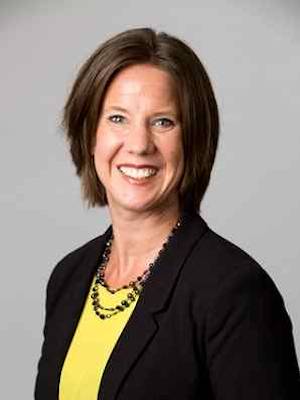
As EPA Region 7’s only environmental justice center, the EFC at Wichita State will implement an engagement and community assessment process to learn from communities about their burdens, barriers, priorities and opportunities, then work with the communities to address their unique needs by providing training, technical assistance, support services, applied research, tool development and other resources that will help remove barriers and improve accessibility for communities with environmental justice concerns. Each of the technical assistance centers will also create and manage communication channels to ensure all communities have direct access to resources and information.
“Environmental justice is fast becoming a front and center issue,” Andrew Hippisley, dean, said. “Having an EJ TCAC is a real win for Kansas and surrounding Indigenous nations, and Tonya Bronleewe and her team’s track record has made them the obvious leader in this initiative.”
The EFC was established in 2010 and is housed within the Hugo Wall School of Public Affairs, which aims to engage in applied research and applied learning that benefits the community — a mission that aligns directly with the role of the new EJ TCTACs. This newest grant continues to build on the EFC’s successful grant procurement for addressing environmental concerns. For more information, visit: the Environmental Finance Center webpage.
Spotlight on Funding
External and internal funding is necessary to support the creative, scholarly and research activities related to the mission of Wichita State University. What follows is a sampling of research support within Fairmount College.
The National Science Foundation awarded $606,305 to Wichita State University for the acquisition of a 500 MHz Nuclear Magnetic Resonance spectrometer equipped with a liquid nitrogen cooled probe. This instrument facilitates research in the areas of drug design, cancer therapeutics, nanomaterials, and polymer chemistry. The instrument was cited in the application abstract as enhancing the “educational, research and teaching efforts of students at all levels in many departments at Wichita State University and in the broader region including 29 rural colleges and universities as well as local chemical, biotech and aviation industries.” James Bann, associate professor of chemistry and biochemistry, is the principal investigator who prepared and administered the grant.
The U.S. Department of Health and Human Services awarded a $375,000 grant to support Alce Su Voz (translation: Speak Out), a coalition of Spanish-speaking Latinx families, interpreters, healthcare providers, community leaders, and university faculty and students whose mission is to improve health equity for Spanish speakers and speakers of Indigenous languages in Kansas. The Kansas Health Foundation awarded the coalition $75,000 and the Kansas Department of Health and Environment gave $250,000, bringing the total support of Alce Su Voz to $700,000. Rachel Showstack, associate professor of Spanish, is the main contact for the alliance and the principal investigator on the grants. Visit www.alcesuvoz.com.
The Research Partnership, a marketing research and consulting agency, is coordinated through the Elliott School of Communication. TRP conducts qualitative and quantitative market research for both the business-to-business and consumer marketplaces — including financial, health care, consumer products and hospitality industries. Methodologies include phone surveys; focus groups; online surveys; mystery shopping; jury studies, including virtual mock trial sessions; intercepts; and depth interviews. In fiscal year 2022 (July 1, 2021-June 20, 2022) TRP procured $165,920 in funding.
Student accolades
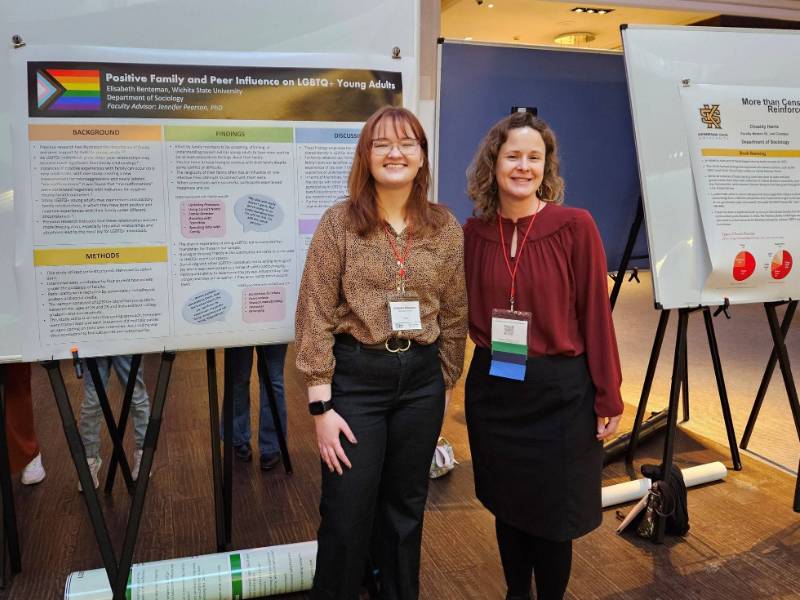
Elisabeth Benteman (left), senior in sociology, won first place for her poster presentation, "Positive Family and Peer Influence on LGBTQ+ Young Adults" at the Undergraduate Research and Creative Activity Forum.
Jenny Pearson (right), professor of sociology, is her advisor.
Emily Cruz, senior in social work, is the recipient of the William H. Swett Prize for Efficiency, which is attained by the student with the highest GPA during their last year at Wichita State. Factors such as the highest number of completed upper-division courses and extracurricular involvement are also considered in the selection process.
Kaitlyn Hemberger, graduate student in English, won first place at the 20th annual Capitol Graduate Research Summit for her poster, “Educational Cybersecurity Intervention Measures of Vulnerable Refugee Populations in Kansas.”
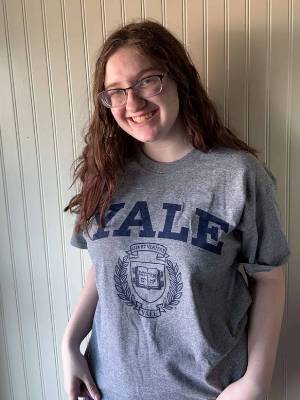 Hannah Holliday, junior in English and Writing Center tutor, was selected for one of two summer internships
with Yale University Press. She will work closely with manuscript editors and assist
them with various stages of the copyediting and proofreading process, as well as evaluate
corrections to text and illustrations.
Hannah Holliday, junior in English and Writing Center tutor, was selected for one of two summer internships
with Yale University Press. She will work closely with manuscript editors and assist
them with various stages of the copyediting and proofreading process, as well as evaluate
corrections to text and illustrations.
Derek Landwehr, graduate student in history, presented at the Kansas Association of Historians, on his work creating the “Las Nuevas Adelitas” documentary.
Richard Whitehill, senior in mathematics and physics, won the 2023 Sarachek Award for Scholarly Excellence in the Natural Sciences. It is given to a graduating senior who has demonstrated intellectual acuity, scholarly breadth and achievements in science as an undergraduate student.
Fairmount College students participating in the Heart of America Japan-America Society’s Japanese Language Contest brought home several awards. Cameron Gillespie, senior in mechanical engineering, first place speech presentation, second place Japanese tanka poem; Wren Johnson, sophomore in communication, second place speech presentation; Alyssa Moen, senior in media arts, first place Japanese culture quiz, second place N5 karuta card game; Lilith Tackett, senior in sociology, honorable mention for English-language tanka; Quyen Tran, senior in computer sciences, honorable mention for calligraphy.
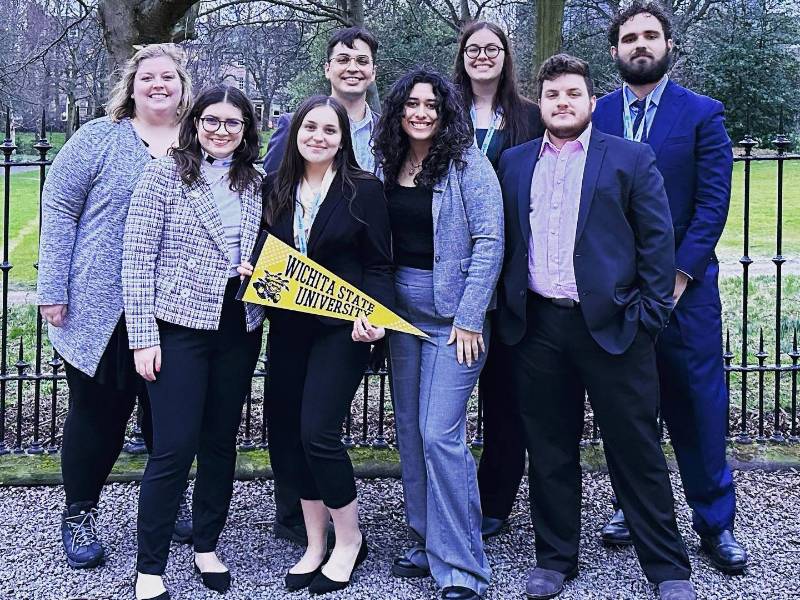
Model United Nations students had success in national and international competition. In Chicago, Ayleen Escobedo, sophomore in political science, and Jacob Unruh, junior in journalism, were designated Outstanding Representation of China in the General Assembly Third Committee.
Wichita State was cited for Outstanding Position Paper on China and Outstanding Position Paper on Vietnam. In Edinburgh, Bayle Sandy, senior in economics, was recognized for Outstanding Delegation for Representation of Nigeria.
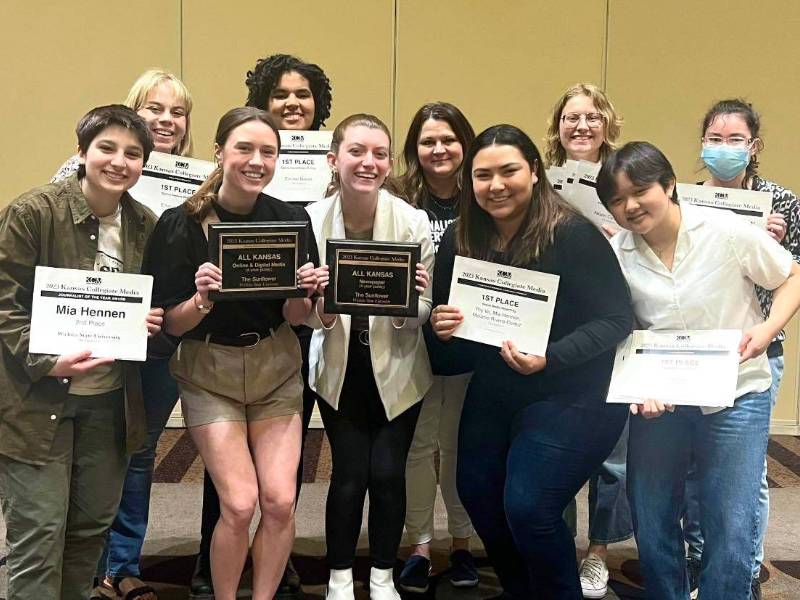
The Sunflower, Wichita State University’s student newspaper, recently placed in the National College Media Spring Conference Best of Show competition, earning the following awards: second place, print newspaper (enrollment 15,000 or more); third place, news website (enrollment 15,000 or more); seventh place, People’s Choice Award (among all publications as voted by conference attendees). Sunflower leaders include Editor-in-Chief Jaycie Nelson, senior in English; Magazine Editor Mia Hennen, junior in English; and Advertising Manager Thy Vo, junior in graphic design.
Hennen was also named first runner-up for the Kansas Collegiate Journalist of the Year by Kansas Collegiate Media. Amy DeVault, senior educator in communication, is the advisor.
Return to Newsletter Section Menu
Senior Honors Awards
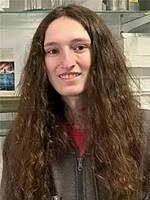 Andrea Cicirello’s efforts in Jian Wang’s research lab have resulted in four first author peer-reviewed journal articles in
high-ranking chemistry journals. She won the American Chemical Society’s Division
of Inorganic Chemistry Award for Undergraduate Research in 2021, which recognizes
the collaborative research of an outstanding undergraduate student/preceptor team
in the field of inorganic chemistry.
Andrea Cicirello’s efforts in Jian Wang’s research lab have resulted in four first author peer-reviewed journal articles in
high-ranking chemistry journals. She won the American Chemical Society’s Division
of Inorganic Chemistry Award for Undergraduate Research in 2021, which recognizes
the collaborative research of an outstanding undergraduate student/preceptor team
in the field of inorganic chemistry.
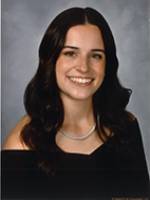 Lauren O'Donnell is studying integrated marketing communication with a minor in English. She is a
Rudd Scholar, a Cohen Honors College student, a four-year member of the Shocker Dance
Team and a four-year member of Delta Gamma fraternity. She also served one year on
the Wichita State Panhellenic Council. O’Donnell has also been recognized for her
leadership and academics on the Dean’s Honor Roll, as a finalist for Undergraduate
Student of the Year, and with various awards from her sorority.
Lauren O'Donnell is studying integrated marketing communication with a minor in English. She is a
Rudd Scholar, a Cohen Honors College student, a four-year member of the Shocker Dance
Team and a four-year member of Delta Gamma fraternity. She also served one year on
the Wichita State Panhellenic Council. O’Donnell has also been recognized for her
leadership and academics on the Dean’s Honor Roll, as a finalist for Undergraduate
Student of the Year, and with various awards from her sorority.
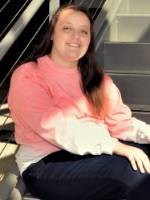 Sydney Jade Snow will graduate summa cum laude with a Bachelor of General Studies and a minor in psychology.
She has been on the Dean's Honor Roll every semester. She frequently volunteers at
a local elementary school. After graduation, she plans to pursue a career in technology.
Sydney Jade Snow will graduate summa cum laude with a Bachelor of General Studies and a minor in psychology.
She has been on the Dean's Honor Roll every semester. She frequently volunteers at
a local elementary school. After graduation, she plans to pursue a career in technology.
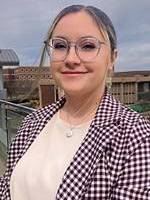 Delaney Cay Jones is majoring in English and is an an Emory Lindquist Honors Scholar through the Cohen
Honors College. She is involved in multiple student organizations on campus, currently
serving as the president of Feminists on Campus Uniting Students. She is a member
of the Sigma Tau Delta English and Mortar Board honors societies. She is publishing
her third op-ed article and serves as an English tutor in the Wichita State Writing
Center.
Delaney Cay Jones is majoring in English and is an an Emory Lindquist Honors Scholar through the Cohen
Honors College. She is involved in multiple student organizations on campus, currently
serving as the president of Feminists on Campus Uniting Students. She is a member
of the Sigma Tau Delta English and Mortar Board honors societies. She is publishing
her third op-ed article and serves as an English tutor in the Wichita State Writing
Center.
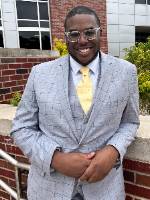 Gregory VanDyke Jr. is majoring in criminal justice with minors in political science and workforce leadership,
and is pursuing an honors track in leadership. He serves as the Speaker of the Senate
and Underserved Senator for the 65th session of the Student Government Association.
He is also the vice president of the Black Student Union. His community involvement
includes serving as a CORE Team member of the St. Mark Cathedral Young Adult team,
a substitute teacher for USD 259, and a member of the USD 383 Committee for Diversity
and Inclusion. Some of his recent awards and accomplishments include being a Top 10
Undergraduate Student of the Year (2021-2022), Academic Convocation speaker (2022-2023)
and maintaining over a 3.9 GPA, leading to a summa cum laude distinction at graduation.
He will pursue a Master of Public Administration degree at Wichita State.
Gregory VanDyke Jr. is majoring in criminal justice with minors in political science and workforce leadership,
and is pursuing an honors track in leadership. He serves as the Speaker of the Senate
and Underserved Senator for the 65th session of the Student Government Association.
He is also the vice president of the Black Student Union. His community involvement
includes serving as a CORE Team member of the St. Mark Cathedral Young Adult team,
a substitute teacher for USD 259, and a member of the USD 383 Committee for Diversity
and Inclusion. Some of his recent awards and accomplishments include being a Top 10
Undergraduate Student of the Year (2021-2022), Academic Convocation speaker (2022-2023)
and maintaining over a 3.9 GPA, leading to a summa cum laude distinction at graduation.
He will pursue a Master of Public Administration degree at Wichita State.
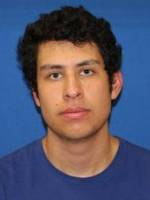
Richard Whitehill is pursuing a dual math and physics degree with a minor in computer science and the Emory Lindquist Honors Scholar track. During his time at Wichita State, he has been involved in nuclear physics research at the Thomas Jefferson National Accelerator Facility through the Research Experience for Undergraduates and Science Undergraduate Laboratory internship programs. After graduating in May, he will pursue a doctorate in physics and a career in physics research.
Return to Newsletter Section Menu
Faculty and Staff Accolades
Michael Birzer, professor of criminal justice, was appointed by Kansas Gov. Laura Kelly to a second term on the Kansas State Board of Indigent Defense Services, where he serves as board secretary. He was also reappointed by the Sedgwick County Board of County Commissioners to a second term on the Community Corrections Advisory Board where he currently serves as board chair.
Kerry Jones, teaching professor of English and director of the Writing Center, won second prize in the annual Boggs Fiction contest for her story “Last Night at the Starlight.” The prize comes with publication in SLAB literary journal and a $400 monetary award.
Rhonda K. Lewis, professor of psychology, and Robert Weems, Willard W. Garvey Distinguished Professor of Business History, were each inducted into the Black Educators Hall of Fame, sponsored by the Art That Touches Your Heart Foundation.
Rachelle Meinecke, director of the Lowell Holmes Museum of Anthropology, was appointed as the Kansas representative to the Mountain-Plains Museums Association for a three-year term. The regional association covers 10 states.
Peer Moore-Jansen, professor of anthropology, received the 2022 Anthropology Section Outstanding Mentorship Award from the American Academy of Forensic Sciences.
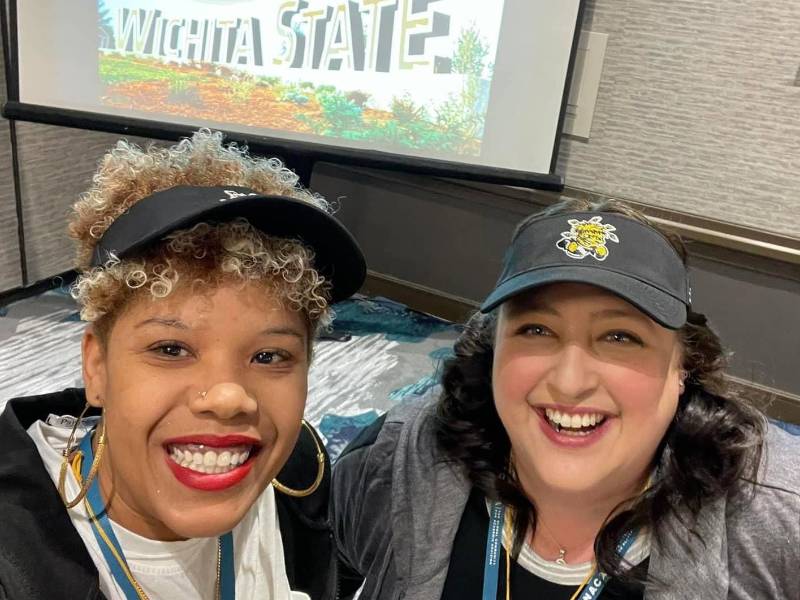
Angela Scott and Kaytie Brozek, academic advisors for the Liberal Arts and Sciences Advising Center, were voted Best of Conference for their presentation, “Put Me in, Coach. I’m Ready to Advise!” at the National Academic Advising Associate Region 7 Conference. They will present the session again this year at the annual conference.
Catherine Searle, professor of mathematics, has been appointed to serve a three-year term on the Broadening Participation Advisory Council of Mathematical Sciences Research Institute. Its charge is to aid MSRI/SLMath’s efforts to promote diversity, equity, and inclusivity in its programs and in the mathematics profession more broadly.
Alexandre Shvartsburg, associate professor of chemistry, was the invited keynote for the 12th Conference on Biomolecules and Biomolecular Interactions in Obergurgl, Austria.
Rannfrid Lasine Thelle, associate professor of religion, was elected to a three-year term on the board of directors of the Southwest Commission on Religious Studies.
College and University Awards
John Hammond, senior educator in mathematics, Academy for Effective Teaching
Mythili Menon, assistant professor of English, Young Faculty Scholar
Lisa Parcell, associate professor, communication, Excellence for Community Research
Carolyn Shaw, professor of political science, President’s Distinguished Service
Rannfrid Lasine Thelle, associate professor of religion, John R. Barrier Distinguished Teaching
Li Yao, associate professor of biological sciences, John See Award
Return to Newsletter Section Menu
In Memoriam
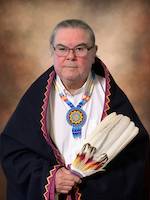 Jerry Shaw, 80, died Nov.17. An instructor in ethnic studies, he taught courses on Native Americans
for 43 years. Each year, he taught the Osage cultural workshop, where students spent
a week on the Osage Reservation to learn about the culture. He served as a member
of the 31st Tribal Council from 2002-2006 and was instrumental in creating the Osage
Nation Language Department to save the Osage language.
Jerry Shaw, 80, died Nov.17. An instructor in ethnic studies, he taught courses on Native Americans
for 43 years. Each year, he taught the Osage cultural workshop, where students spent
a week on the Osage Reservation to learn about the culture. He served as a member
of the 31st Tribal Council from 2002-2006 and was instrumental in creating the Osage
Nation Language Department to save the Osage language.
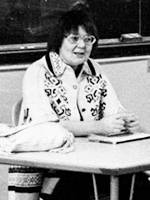 Dorothy Walters, former professor of English and women’s studies. Memorials may be made to The International
Association for Near-Death Studies, 2741 Campus Walk Ave. #500, Durham NC 22705; Trail
Winds Hospice Foundation, 75 Manhattan Place #208, Boulder, CO 80303; or a charity
of choice.
Dorothy Walters, former professor of English and women’s studies. Memorials may be made to The International
Association for Near-Death Studies, 2741 Campus Walk Ave. #500, Durham NC 22705; Trail
Winds Hospice Foundation, 75 Manhattan Place #208, Boulder, CO 80303; or a charity
of choice.
Return to Newsletter Section Menu
Retirements
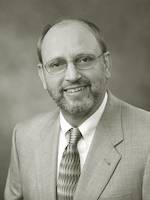 Bill Bischoff, former dean and professor of geology
Bill Bischoff, former dean and professor of geology
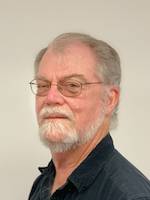 Don Blakeslee, professor of anthropology
Don Blakeslee, professor of anthropology
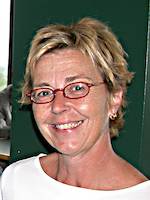 Colette Burke, associate professor of geology
Colette Burke, associate professor of geology
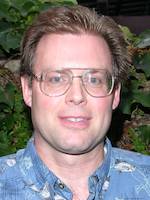 Craig Torbenson, associate professor of history
Craig Torbenson, associate professor of history
Robert Feleppa, professor of philosophy
Sally Jones, director of Intensive English Language Center
Return to Newsletter Section Menu
Annual Report
Academic initiatives
Aug. 1, 2022 – July 31, 2023
- Bachelor of Arts in American Sign Language
- Bachelor of Science in mathematics with a data science emphasis
- Certificate in health equity and leadership
- Certificate in global competency
- Department name change: chemistry and biochemistry
Academic programs offered
Aug. 1, 2022 – July 31, 2023
- 1 associate
- 54 bachelor’s
- 17 master’s
- 3 doctorate
- 31 certificates
The Fairmount College of Liberal Arts and Sciences continues to grow and provide new academic program offerings.
Our graduates complete their programs having gained the hard-earned skills of critical thinking, analyzing, problem-solving, collaborating, listening and communicating. Our students are equipped to pursue a lifetime of fulfillment in the workplace and in society.
About the college
- 37 student organizations
- 7 centers and institutes
- 18 departments:
- 5 Humanities
- 8 Social/Behavioral Sciences
- 5 Natural Sciences/Mathematics
Faculty
Jan. 8, 2023
- 149 tenured or tenure-track
- 48 non-tenure track
- 197 total faculty
Students
Sept. 19, 2022
- 4,969 undergraduate
- 38,079 credit hours
- 428 graduate
- 4,249 credit hours
5,397 total students
As the largest college at Wichita State University, we offer the greatest diversity of programs, so all students can find something to fit their interests. For those who want a more individualized program of study, academic advisors can help students tailor a bachelor of general studies degree or a field major — both of which influence focus on three content areas.
Undergraduate major headcounts
Sept. 19, 2022
- Humanities: 293
- Social/Behavioral Sciences: 1,880
- Natural Sciences/Mathematics: 700
- Other*: 2,582
* Interdisciplinary Bachelor of General Studies and field majors, undecided, Intensive English, and guest students.
Degree production by college division
Aug. 1, 2021 – July 31, 2022
- Humanities: 84
- Social/Behavioral Sciences: 621
- Natural Sciences/Mathematics: 138
- LAS Other*: 75
* Interdisciplinary degrees, bachelor and associate degrees not affiliated with a department.
Ways We Support Students Outside of the Classroom
Liberal Arts and Sciences Advising contacts
Jan.1 – Dec. 31, 2022
- Advising appointments: 6,781
- Triage meetings with students: 388
- Campus visits: 93
- Telephone calls received at front desk: 9,939
- las.advisor emails answered: 920
- Emails and calls to students: 11,364
Our academic advisors do more than show students how to build schedules. They also help students understand the purposes of higher education; define and develop unique abilities, goals, and aspirations; clarify values and educational and life goals; define realistic academic and professional goals; and create an individual academic plan of study for the student’s selected major. The LAS Advising Center offers in-person and virtual advising appointments.
Scholarships Awarded
Aug. 1, 2020-July 31, 2022
- 2022: $775,971— 430 awards
- 2021: $638,356 — 445 awards
- 2020: $632, 809 — 403 awards
Scholarship support can make the difference for students who want to enroll in college. Our generous donors have made scholarships possible for hundreds of students.
Fundraising
July 1, 2021 to June 30, 2022
- Undergraduate scholarships (current plus endowed): $1,614,175
- Graduate assistantships and fellowships: $184,260
- Program initiatives: $2,323,447
Program initiatives include projects that are not in direct assistance to students, faculty or staff, such as a speaker series or providing lab equipment.
Thank you for your financial support of Fairmount College!
Social Media
Followers or subscribers as of April 18, 2023
- Facebook, started in 2015: 844
- Twitter, started in 2016: 364
- YouTube, started in 2020: 59
We use social media channels to inform our followers of upcoming events, study tips, majors and careers, important deadlines, and current event discussions.
Faculty Productivity
Just as students are expected to engage in activities that support their learning, faculty are expected to remain at the forefront of their research and creative activity. They are also expected to procure funding to support it. Fairmount College faculty have much knowledge to share and strive to add to the knowledge base.
Faculty Publication and Presentation Activity
Jan. 1 – Dec. 31, 2022
- 3 books published
- 143 book chapters/journal articles published
Faculty Awarded Grants
Jan. 1 – Dec. 31, 2022
- External awards: $9,227,195
- Internal awards: $67,717
For more information, see the Spotlight on Funding.

